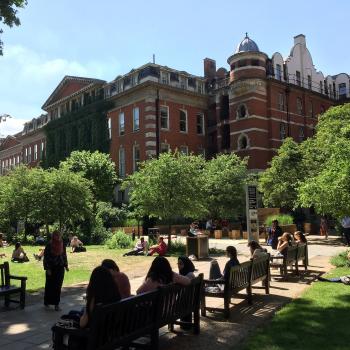
You would certainly be forgiven if you assumed from the title of this blog entry that it’s a defense of my being sentient even despite the claims of certain detractors of mine. Surprisingly, though, it’s not. It’s about something related, but quite distinct.
I know that it really irritates a small group of my worst critics, but irritating them isn’t actually the reason that I continue to post notes and excerpts from Pim van Lommel, Consciousness Beyond Life: The Science of the Near-Death Experience (New York: HarperCollins, 2010). To the contrary, there are two principal reasons why I do so: For one thing, a number of people have told me that they’re really enjoying these. And, second, posting the notes here encourages me to extract passages that I marked long ago but have never typed into my computer files.
So here’s another one:
Can we speak of consciousness when a person is in a coma? A recent article in Science looked at the scientific evidence of awareness in a patient in a vegetative state. This is a form of coma with spontaneous breathing and brain-stem reflexes. Brain tests showed that when this patient was instructed to imagine certain activities like playing tennis or moving around her home, the monitors recorded changes identical to those in healthy volunteers who carried out the same instructions. This means that the identified changes can be explained only by assuming that this patient, despite her vegetative state, not only understood the verbal instructions but also carried them out. The research demonstrated that this coma patient was aware of both herself and her surroundings but that her brain damage prevented her from communicating her thoughts and emotions directly to the outside world. In her book Uit coma (Out of Coma), Alison Korthals Altes also describes seeing staff and family in and around the intensive care unit during her three-week coma following a serious traffic accident.
Can we still speak of consciousness when a person has been pronounced brain-dead? In his book Droomvlucht in coma (Dream Flight in Coma), Jan Kerkhoffs tells us about his conscious experiences after neurologists declared him brain-dead following complications during brain surgery. Only because his family refused organ donations was he able to write about his experiences because, much to everybody’s surprise, he regained consciousness after three weeks in a coma. (ix-x)
***
In other interesting science news:
“Weird Infrared Signal Emanates Across Space, But What Created It?”
“Stunning sphinx discovered at ancient Egyptian temple”












